Show jumping demands excellence. The split-second timing, the explosive power needed to clear 1.60-meter oxers, the mental focus required to navigate a technical course—all of this places extraordinary demands on our equine athletes. Yet while we meticulously plan training schedules, invest in top-quality facilities, and work with the best coaches, there's a critical aspect of performance that often goes overlooked until problems arise: the gastrointestinal health of our show jumpers.
The truth is, the very lifestyle that creates top show jumping horses—the intensive training, competition travel, high-grain diets, and performance pressure—creates a perfect storm for digestive issues. Understanding these challenges and taking proactive steps to support gut health isn't just about preventing disease; it's about unlocking your horse's full athletic potential.
The Unique Digestive Challenges Facing Show Jumpers
Show jumping horses face a constellation of factors that compromise their digestive systems. Unlike their pasture-kept counterparts who graze leisurely for 16-18 hours daily, performance horses live in an environment that contradicts their evolutionary digestive design.
Dietary Demands and Compromises
To fuel the explosive power required for jumping, show jumpers typically receive concentrate-rich diets high in starches and sugars. While these provide the quick energy needed for performance, they come at a cost. The equine small intestine can only digest a limited amount of starch per meal—approximately 0.18 ounces per pound (equivalent to 0.4 grams per kilogram) of body weight (1). Exceed this threshold, and undigested starch spills into the hindgut, where it disrupts the delicate microbial balance and creates acidic conditions that damage the gut lining.
Many show jumpers consume approximately 9.5 lb (4.3kg) of grain daily, with some receiving up to 17.6 lb (8kg), split across multiple meals (2). Even with careful management, some starch inevitably reaches the hindgut, setting the stage for inflammation, discomfort, and reduced performance.
The Stress Factor
Competition stress affects horses physiologically, not just mentally. Research shows that stress hormones reduce blood flow to the gastrointestinal tract, compromising the protective mucus layer in the stomach and making horses more vulnerable to gastric ulcers (3). Studies indicate that up to 70% of performance horses develop gastric ulcers (4), with show jumpers being particularly susceptible.
Travel compounds this problem. Long hours in trailers, irregular feeding schedules, changes in water sources, and disrupted routines all contribute to digestive upset. Many riders notice their horses go off feed at shows or develop loose manure—clear signs of gastrointestinal distress.
Restricted Grazing and Forage Limitation
To maintain ideal competition weight and manage energy levels, many show jumpers have restricted access to pasture. While this management makes sense from a training perspective, it means horses spend less time engaged in the continuous grazing behavior their digestive systems evolved for. Reduced forage intake means less saliva production (which buffers stomach acid), longer periods with an empty stomach, and decreased hindgut fermentation—all factors that compromise digestive health (5).
The Performance Impact of Poor Gut Health

When we talk about gastrointestinal issues in show jumpers, we're not just discussing medical problems—we're talking about performance limiters that can mean the difference between clear rounds and rails down, between winning and finishing outside the ribbons.
Physical Manifestations
Horses with compromised gut health often exhibit subtle signs that affect jumping performance. Digestive discomfort can cause (6):
- Reluctance to engage the hindquarters fully, reducing the power available for takeoff
- Back soreness and tension, as gastrointestinal pain often manifests as muscular tightness
- Inconsistent performance, with horses jumping brilliantly one day and refusing or running out the next
- Weight loss or difficulty maintaining condition, despite adequate caloric intake
- Reduced stamina in jump-offs or over challenging courses
Behavioral Changes
The gut-brain connection in horses is profound. Horses experiencing digestive discomfort frequently become (6):
- Irritable or aggressive, particularly around feeding time or when girthing
- Anxious or unfocused, making them difficult to settle at competitions
- Resistant to training, as they associate work with increased discomfort
- Less willing jumpers, showing hesitation at fences they previously cleared easily
Many horses labeled as "difficult" or "mareish" are actually suffering from undiagnosed gastrointestinal issues. The horse that pins its ears when you tighten the girth might be telling you about hindgut inflammation, not attitude problems.
Common Gastrointestinal Issues in Show Jumpers
Gastric Ulcers
Gastric ulcers remain the most prevalent digestive issue in performance horses (7). The squamous (upper) portion of the stomach lacks the protective mucus layer present in the glandular (lower) region, making it vulnerable to acid damage. During exercise, especially jumping, acid splashes upward, bathing the squamous region and causing painful lesions.
Hindgut Acidosis and Inflammation
When undigested starch reaches the hindgut, it rapidly ferments, producing lactic acid and volatile fatty acids that drop the pH (8). This acidic environment kills beneficial fiber-digesting bacteria and allows harmful bacteria to proliferate. The result is inflammation of the colon and cecum, leading to discomfort, altered manure consistency, and increased risk of colic.
Colic
Show jumpers face elevated colic risk due to dietary management, stress, and often insufficient water intake during competition (9). Gas colic, spasmodic colic, and impaction colic all occur with unfortunate frequency in performance horses. Given that colic remains a leading cause of death in horses, prevention must be a priority.
Supporting Digestive Health in Show Jumping Horses
Protecting your show jumper's gastrointestinal health requires a multi-faceted approach that addresses diet, management, and supplementation.
Optimizing Feed Management
Maximize forage intake and minimize concentrate feeds where possible. Feed smaller, more frequent grain meals to reduce starch overload. Ensure horses eat forage before grain to slow gastric emptying and provide a fiber mat that helps prevent acid splash during work.
Stress Reduction
Maintain consistent routines, even at competitions. Allow adequate warm-up time before jumping. Consider management practices that reduce anxiety, such as allowing horses to see other horses or providing environmental enrichment.
Strategic Supplementation with EquiNectar
This is where EquiNectar offers show jumper owners a powerful tool for digestive support. Made from ancient artisan barley varieties treasured for over 800 years for their natural enzyme content, EquiNectar provides a comprehensive approach to digestive health.
The natural enzymes in EquiNectar—including amylase for starch digestion, fructanase for grass sugars, cellulase and xylanase for plant fiber, and phytase for mineral absorption—help your horse break down and utilize feed more efficiently. This means less undigested starch reaching the hindgut, reducing the risk of acidosis and inflammation.
By promoting optimal digestion in the foregut, EquiNectar helps prevent the cascade of problems that begin when feed isn't properly processed. Better nutrient absorption means your horse gets more from every mouthful, supporting conditioning and performance without requiring increased feed volume.
The support for a healthy gut microbiome is particularly valuable for show jumpers. The beneficial bacteria that thrive when digestion is optimal produce important vitamins, support immune function, and maintain gut barrier integrity. This creates a positive cycle: better digestion supports better gut health, which enables even better digestion.
For horses dealing with the stress of competition, EquiNectar's comprehensive nutritional profile—including B vitamins for nervous system function and energy metabolism, antioxidants to combat exercise-induced oxidative stress, and essential minerals—provides crucial support during demanding periods.
Perhaps most importantly for performance horses, EquiNectar helps prevent gas colic by promoting efficient fermentation and reducing gas production. Given the devastating impact colic can have on a competitive career, this preventive benefit alone makes digestive support invaluable.
The Bottom Line
In show jumping, we obsess over every detail that might improve performance—the perfect bit, the ideal stirrup length, the optimal stride to a fence. Yet the foundation of all performance is health, and the foundation of health is proper digestion and nutrient absorption.
By prioritizing gastrointestinal health through careful management and strategic supplementation with products like EquiNectar, you're not just preventing disease—you're enabling your horse to perform at its absolute best. A horse with a healthy, comfortable digestive system is a horse that can focus, try its heart out, and deliver the consistent performances that lead to success in the competitive arena.
The investment in digestive health pays dividends every time your horse clears that final fence, every time you hear "clear round," and every time you know your equine partner is happy, healthy, and ready to give you their best. Don't let hidden gastrointestinal issues hold your show jumper back—take action today to support the digestive health that underpins all performance.
References
- Potter, G. D., Arnold, F. F., Householder, D. D., Hansen, D. H., & Brown, K. M. (1992). Digestion of starch in the small or large intestine of the equine. Pferdeheilkunde, (Sonderausgabe), 107-111. https://www.cabidigitallibrary.org/doi/full/10.5555/19921449964
- Brunner, J., Wichert, B. A., Burger, D., Geser-von Peinen, K., & Bruckmaier, R. M. (2012). A survey on the feeding of eventing horses during competition. Journal of Animal Physiology and Animal Nutrition, 96(5), 878-884. https://doi.org/10.1111/j.1439-0396.2012.01324.x
- Young, A., & Magdesian, G. (2019, July 29). Equine gastric ulcer syndrome. UC Davis School of Veterinary Medicine, Center for Equine Health. https://ceh.vetmed.ucdavis.edu/health-topics/equine-gastric-ulcer-syndrome
- Lundgren, R. (2024, November). Around 70% of competition horses suffer from stomach ulcers! Equimade. https://equimade.com/blog/around-70-of-competition-horses-suffer-from-stomach-ulcers/
- Ermers, C., McGilchrist, N., Fenner, K., Wilson, B., & McGreevy, P. (2023). The Fibre Requirements of Horses and the Consequences and Causes of Failure to Meet Them. Animals : an open access journal from MDPI, 13(8), 1414. https://doi.org/10.3390/ani13081414
- Pineau, V., Ter Woort, F., Julien, F., Vernant, M., Lambey, S., Hébert, C., Hanne-Poujade, S., Westergren, V., & van Erck-Westergren, E. (2024). Improvement of gastric disease and ridden horse pain ethogram scores with diet adaptation in sport horses. Journal of veterinary internal medicine, 38(6), 3297–3308. https://doi.org/10.1111/jvim.17223
- Andrews, F. M., & Friendship, R. M. (2024). Gastric ulcers in horses (equine gastric ulcer syndrome). In The Merck veterinary manual. Merck & Co., Inc. https://www.merckvetmanual.com/digestive-system/gastrointestinal-ulcers-in-large-animals/gastric-ulcers-in-horses
- Liversidge, B. (2025, May 6). Hindgut acidosis in horses – signs, causes & how to prevent. Mad Barn. https://madbarn.com/hindgut-acidosis/
- Moore, J. N. (2024). Colic in horses. In The Merck veterinary manual. Merck & Co., Inc. https://www.merckvetmanual.com/horse-owners/digestive-disorders-of-horses/colic-in-horses


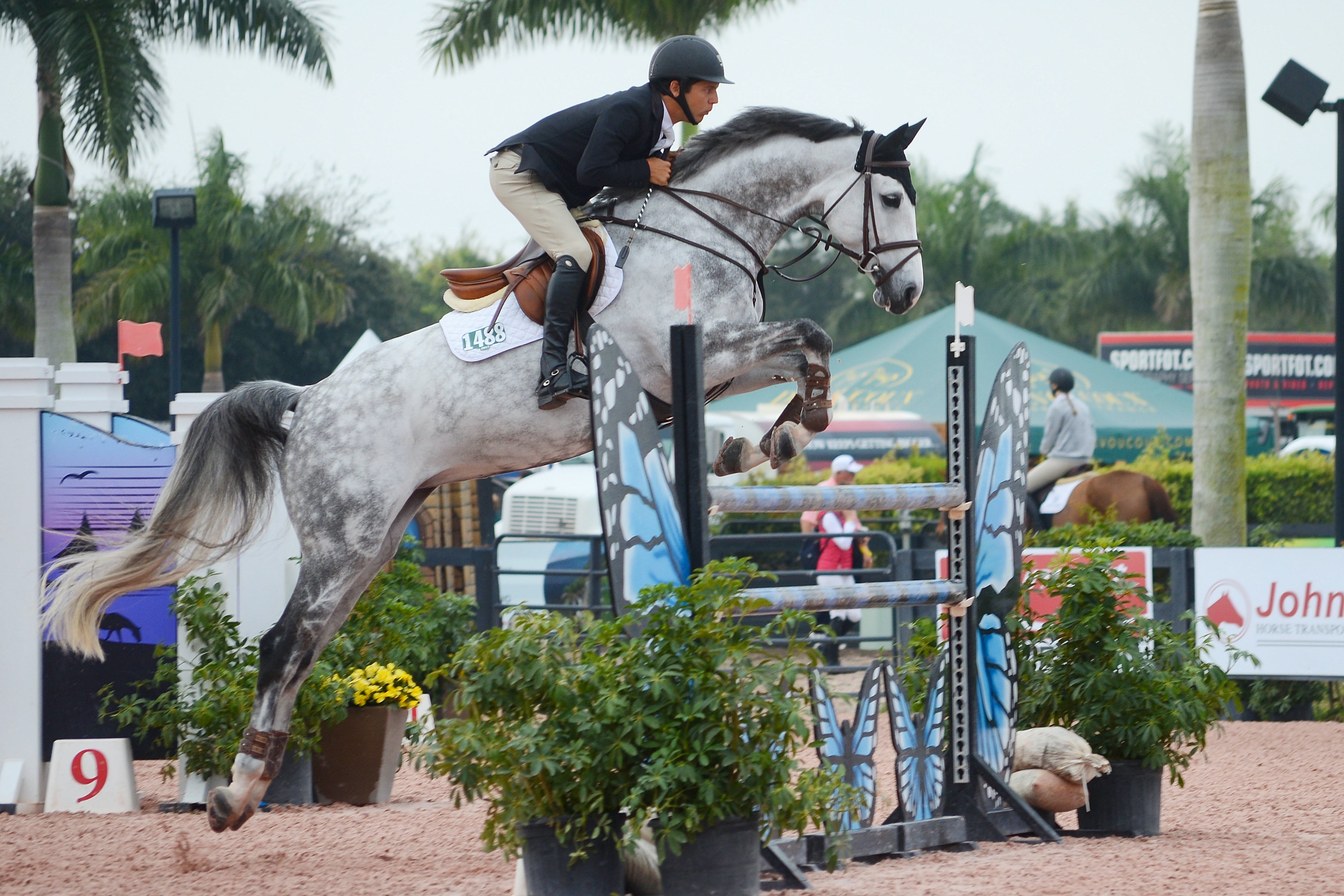
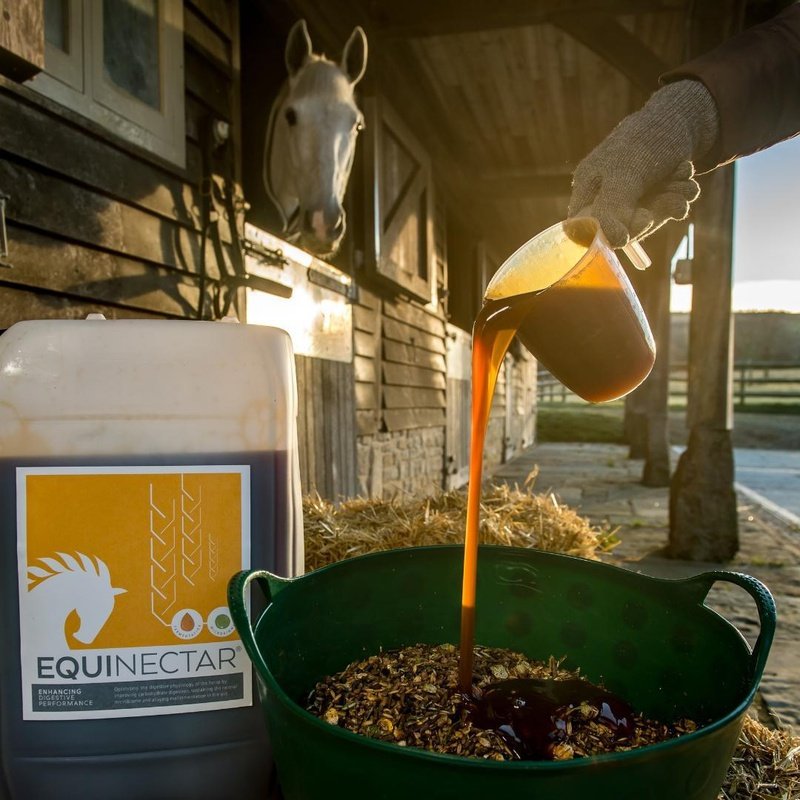
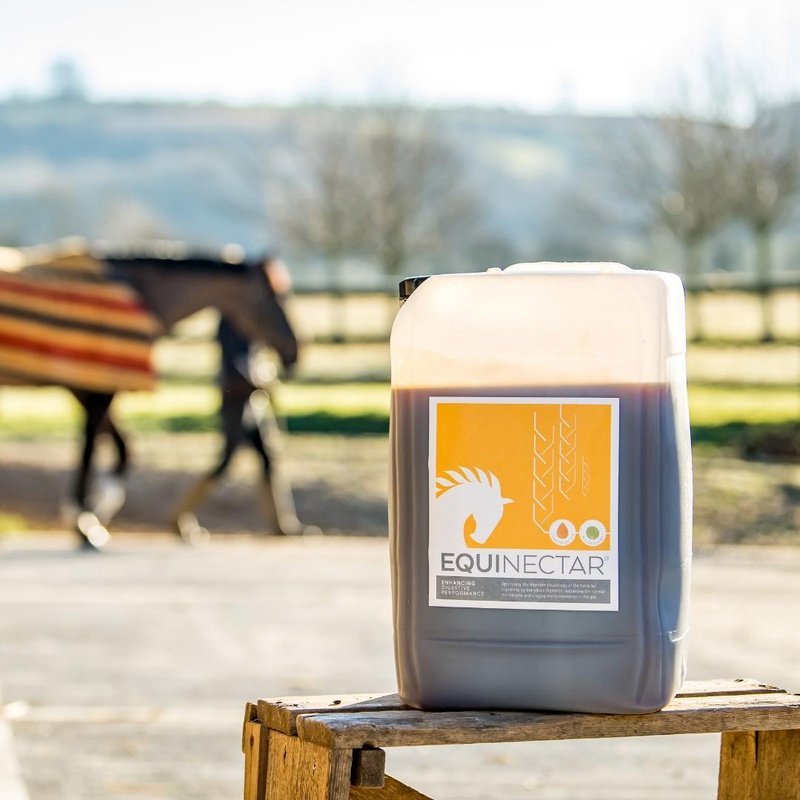
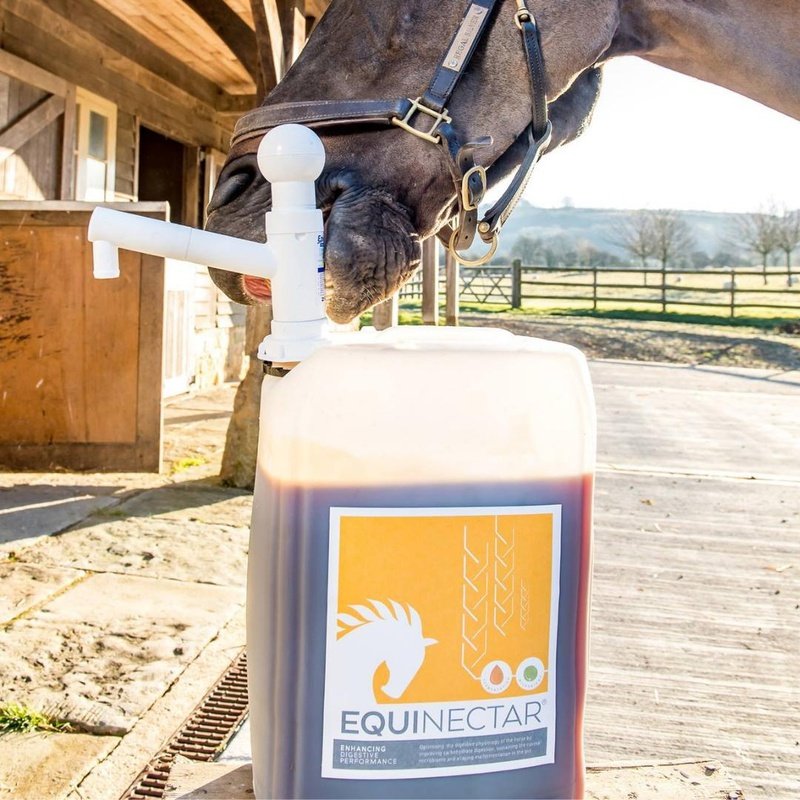
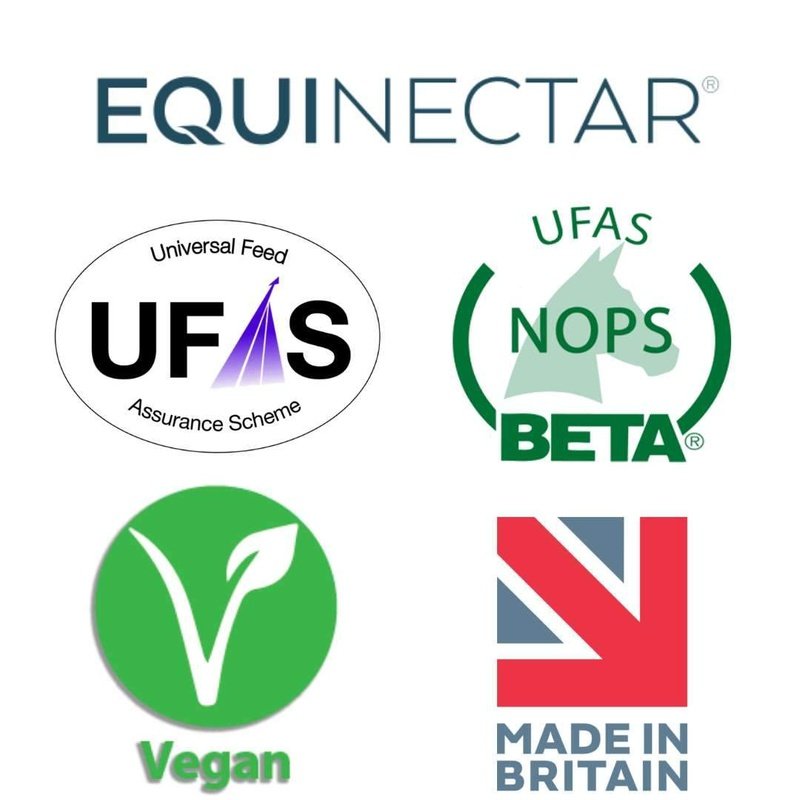
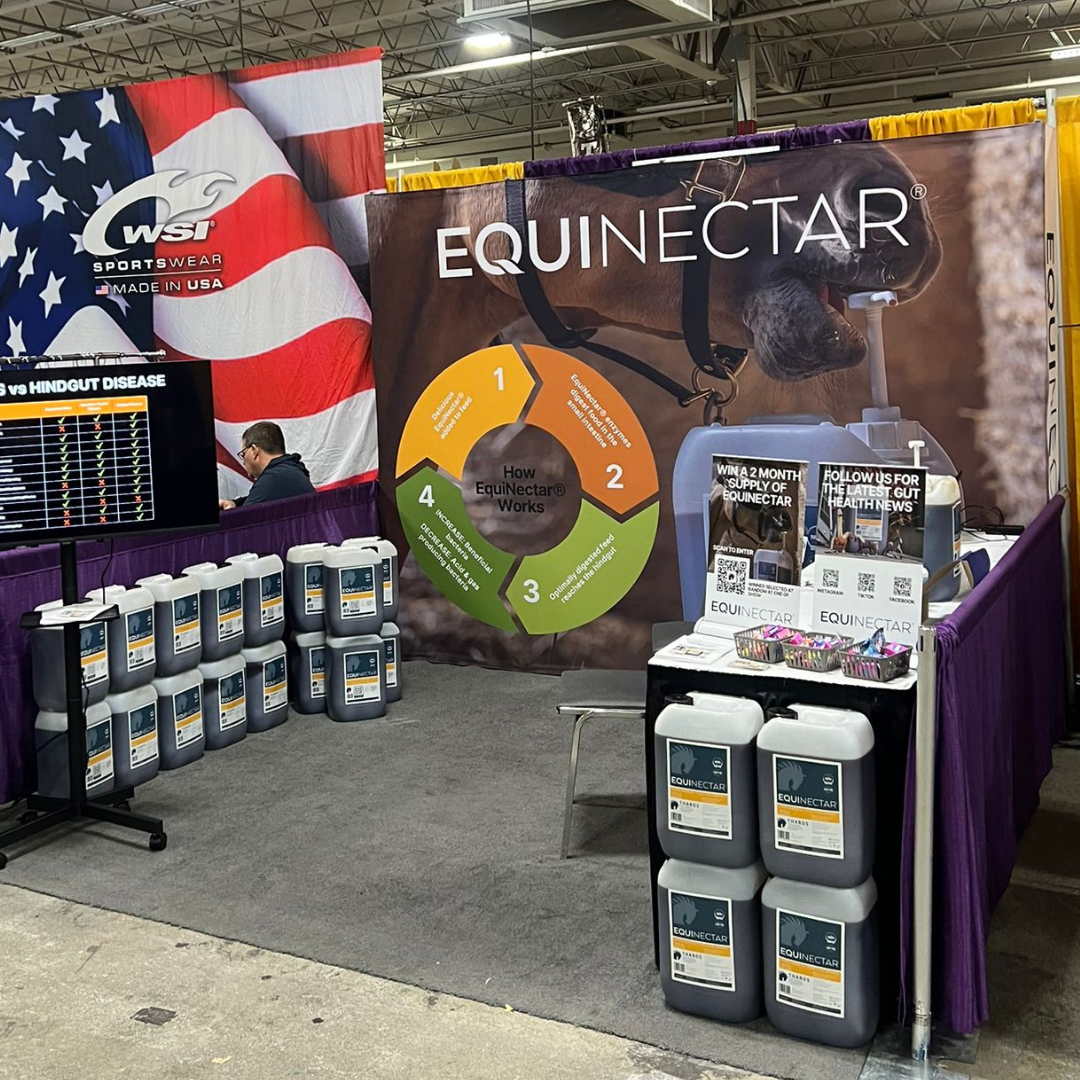

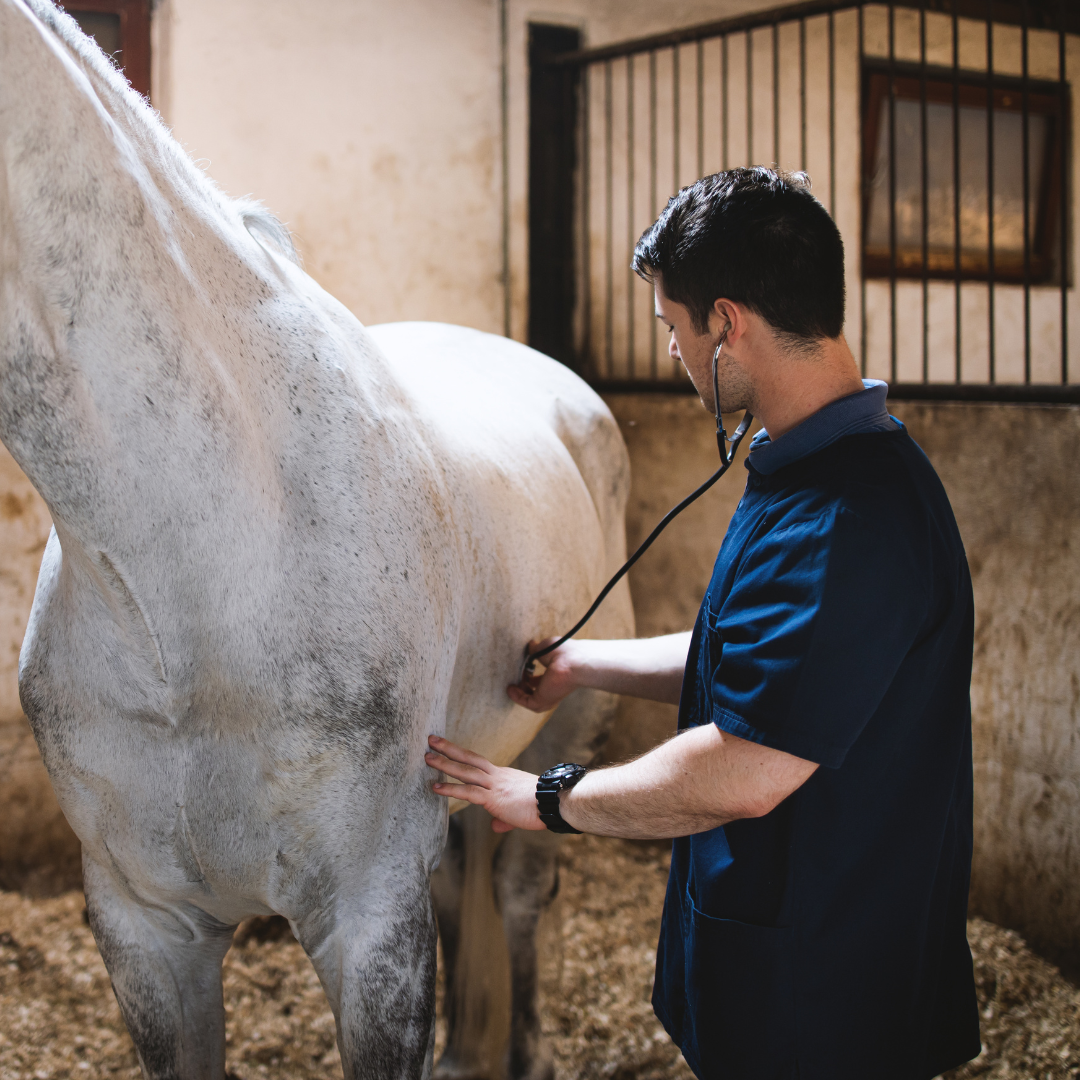
Share: